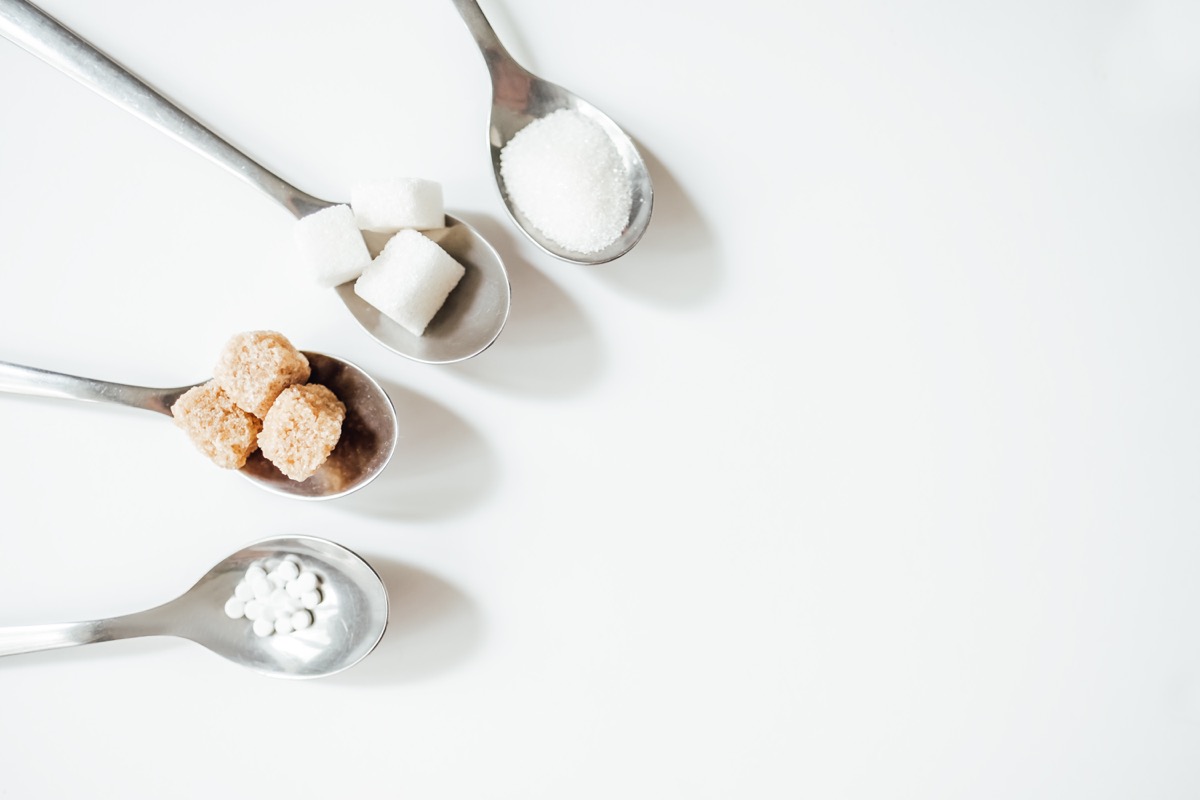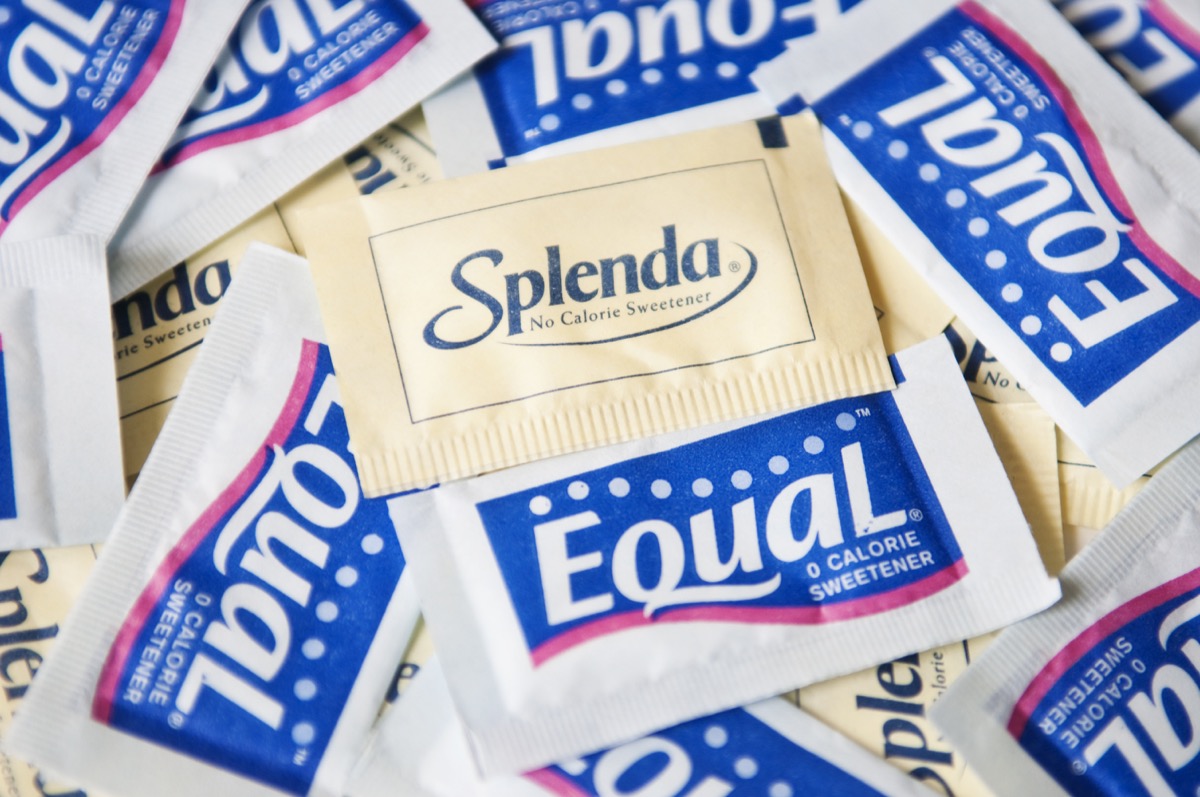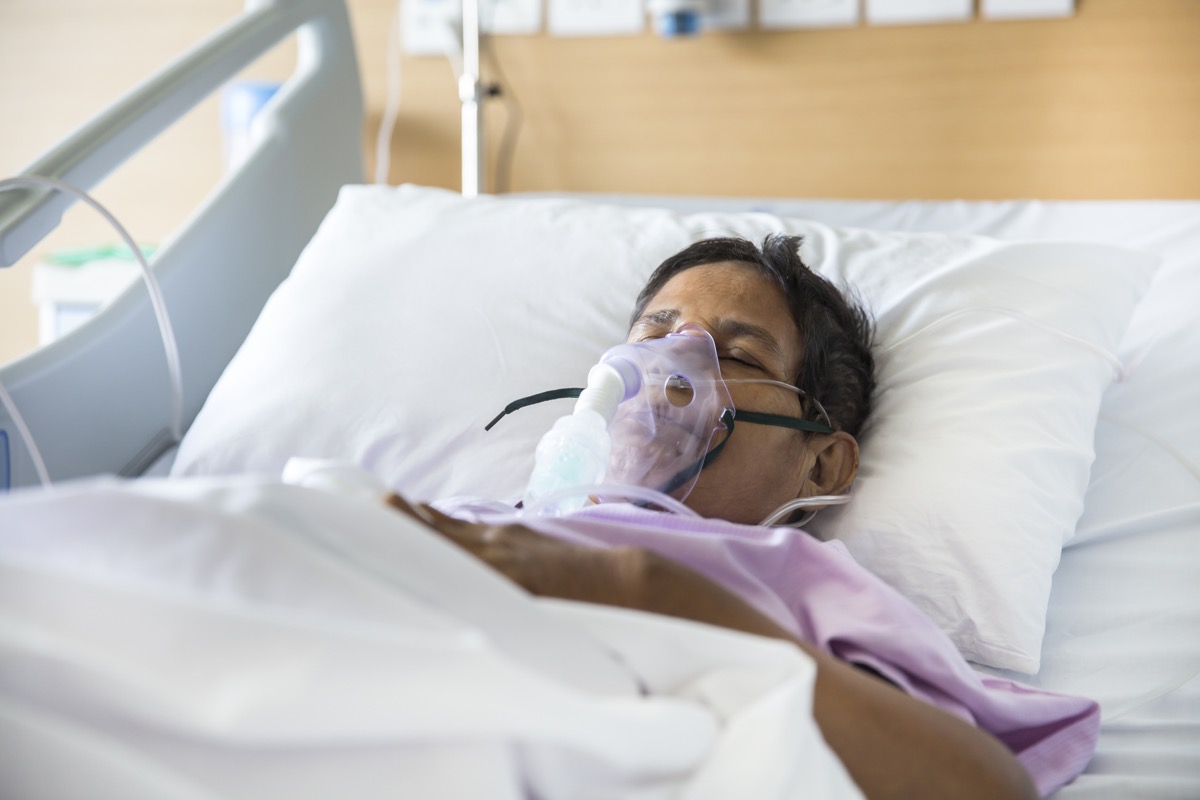Diet Soda and Anti Antibiotics
If You Drink This, You Could Become Resistant to Antibiotics, Study Says
New research says ingesting this could promote antibiotic resistance.

When you have an infection, your doctor is likely to prescribe you an antibiotic that kills the bacteria making you sick. However, there's a chance you could be infected with bacteria that has become resistant to antibiotics—which means the medicine cannot effectively attack and kill it. According to a new study, something you drink every day could be making you more prone to this antibiotic-resistant bacteria, which can have dangerous consequences. Read on to find out if you're ingesting this potentially problematic substance, and for more drinks to avoid, If Your Milk Carton Doesn't Say This, the CDC Says Don't Drink It.

University of Queensland researchers tested four commonly consumed artificial sweeteners to determine their effect on antibiotic resistance, publishing their results Feb. 16 in The ISME Journal. According to the study, all four of the sweeteners—saccharine, sucralose, aspartame, and acesulfame potassium—significantly contributed to antibiotic resistance by promoting the spread of antibiotic resistance genes in the intestine. The researchers say that there is evidence that these sweeteners cause bacteria damage, which is likely to produce a bacterial response called the SOS response. This reaction has been linked to the spread of antibiotic resistance genes, per the study, which could heighten someone's likelihood of developing bacteria that is resistant to antibiotics. And for more questionable food ingredients, If You Have This Popular Sauce at Home, Don't Use It, FDA Warns.

It's very likely you've used an artificial sweetener, as the U.S. Food and Drug Administration (FDA) approves their use as a safe sugar substitute in many foods and beverages. According to the study, approximately 117,000 tons of artificial sweeteners are used globally each year. Livestrong notes that sugar substitutes such as Sweet 'N Low, Sweet Twin, and Necta Sweet use saccharin, while Diet Coke includes a combination of saccharin and aspartame. Sucralose is used in Splenda, and acesulfame potassium is found in many sugar-free foods and drinks, per Healthline. And for more useful information delivered straight to your inbox, sign up for our daily newsletter.

According to the study, antimicrobial resistance is usually caused by the creation of antibiotic resistance genes from the misuse or overuse of antibiotics. However, previous studies from the same researchers found that this can occur with non-antibiotic pharmaceuticals as well, such as nonsteroidal anti-inflammatory drugs (NSAIDs) like aspirin or ibuprofen.
"It is becoming clear that we need to be very careful in our use of these common products, as overuse can rapidly increase the problems brought on by antimicrobial resistance," Jianhua Guo, PhD, one of the study's researchers and an associated professor from the University of Queensland's Advanced Water Management Centre, said in a statement. And for more medications to be cautious with, If You Take This Common Medication, Talk to a Doctor Before Your COVID Vaccine.

Developing bacteria that is resistant to antibiotics can have deadly consequences. The Centers for Disease Control and Prevention (CDC) says that "antibiotic resistance is one of the biggest public health challenges of our time." According to the agency's data, at least 2.8 million people develop an antibiotic-resistant infection each year and more than 35,000 people die as a result. Antibiotic resistance occurs when "germs like bacteria and fungi develop the ability to defeat the drugs designed to kill them," and if an infection cannot be stopped, it can lead to dangerous complications like sepsis, which is life-threatening. And for more food-related dangers, If You're Making Your Dinner in This, Stop Right Now, Experts Say.
Diet Soda and Anti Antibiotics
Source: https://bestlifeonline.com/news-sweeteners-resistant-antibiotics/
0 Response to "Diet Soda and Anti Antibiotics"
Post a Comment